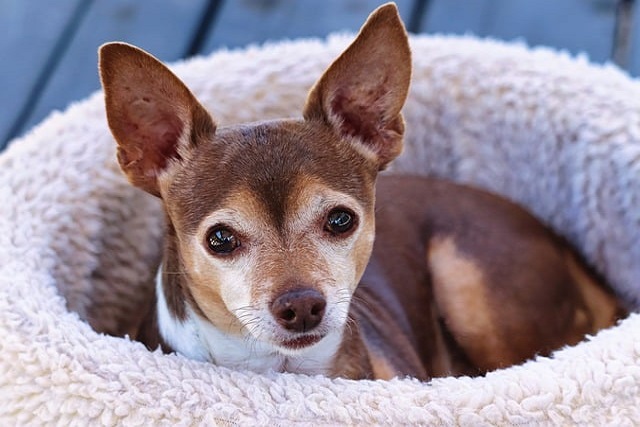
Should I clean my dog’s ears if he has ear mites
If you’re a new dog parent in the US—maybe you just brought home a fluffy Shih Tzu puppy from a shelter in California or a playful Dachshund from a breeder in Michigan
Coming home to a shredded couch cushion and a quivering pup by the door—sound familiar? For new dog owners in Chicago high-rises or suburban Atlanta homes, separation anxiety isn’t just a hassle; it’s heart-wrenching. That panic in your dog’s eyes when you grab your keys, the howling that echoes through the apartment hallways, the accidents on the rug—these aren’t signs of “bad behavior.” They’re cries for help, and figuring out how to ease them is key to both your peace and your pup’s happiness.
Dogs are pack animals, wired to stick close to their group. For your furry friend, you are their pack. When you leave, their brains flood with stress hormones, making them feel unsafe—like a kid left alone in a crowded store for the first time. This isn’t stubbornness; it’s fear. Breeds like Vizslas or Golden Retrievers, known for their loyalty, often struggle more because their bond with you runs extra deep. My neighbor’s rescue Greyhound, Leo, used to chew through doorframes when left alone—turns out, he’d never been separated from his previous owner for more than an hour.
So, how do you fix it? Start small. Practice “mini separations”: grab your coat, step outside for 30 seconds, then come back. Ignore the excited jumping at first—calmly greet them after they’ve settled. Gradually stretch the time to 1 minute, then 5, rewarding quiet behavior with a treat (think: a Kong stuffed with peanut butter). This teaches them “you leaving = good things happen.” Leo’s owner did this, and after 6 weeks, he’d nap by the window instead of panicking. Leave an item with your scent—a worn sock or old shirt—so they have a piece of you. And never make departures dramatic; slip out quietly, and keep returns low-key to avoid amping up their anxiety.

Now, let’s tie this to being a responsible owner. First, rabies vaccines are mandatory in every U.S. state—no exceptions. A stressed dog with a weakened immune system needs those shots to stay healthy. When you’re out walking, always pack poop bags. In Seattle, forgetting them can cost $250, and in Miami, it’s $150. Apartment dwellers, keep noise in check: if your pup barks while you’re gone, try white noise machines or calming pheromone diffusers—your neighbors won’t appreciate the 3 p.m. serenades. And remember: scolding or hitting during anxious outbursts makes it worse. Positive reinforcement is the golden rule here—praise calmness, and redirect stress with toys, never punishment.
At the end of the day, fixing separation anxiety takes patience, not perfection. Your pup isn’t trying to misbehave—they’re just scared. With small steps and lots of love, you’ll both learn that “goodbye” isn’t forever.

If you’re a new dog parent in the US—maybe you just brought home a fluffy Shih Tzu puppy from a shelter in California or a playful Dachshund from a breeder in Michigan

If you’re a new dog parent in the US—maybe you just brought home a wiggly Beagle puppy from a shelter in California or a cuddly Pug from a breeder in Pennsylvania

If you’re a new dog parent in the US—maybe you just brought home a fluffy Golden Retriever puppy from a shelter in Colorado or a snuggly French Bulldog from

Many dog owners notice their pups begging for extra treats or lingering by the food bowl long after meals, which can lead to unhealthy weight gain over time.

If you're considering giving your double-coated dog a summer buzz cut for their comfort, you might be surprised to learn that this is one of the most counterproductive

If you’re a new dog parent in the US—maybe you just brought home a fluffy Golden Retriever puppy with a wagging tail or a calm Shih Tzu with cascading fur